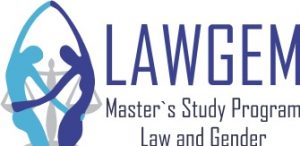Call for papers

Participants shall submit papers about Gender issues regarding only one of the following priority thematic axes:
- Thematic axe:
- Business Law
- Commercial Law
- Economics
- Tax Law
- Thematic axe:
- Civil Law
- Criminal Law
- Procedural Law
- Thematic axe:
- Human Rights
- International Law
- European Union Law
- Philosophy of Law
- Thematic axe:
- Labour Law
- Social Security Law
- Thematic axe:
- Postcolonial studies
- Social work
- Sociology
Abstracts must be submitted until May 30th, 2021.
ABSTRACTS:
Authors should submit a proposal that develops one of the topics of the Congress which abstract shall have a maximum length to 300 words. All proposals must be in English and will be subject to a refereeing process. Proposals will be received using the following form. The proposals must be accompanied with the name and email of the author/s and the contact details, country and the organization they belong to, if applicable, the title and the thematic area attached.
The approval of submitted abstracts will be informed before Jun 10th, 2021. Decisions will be communicated.
Authors of accepted abstracts must register for the Congress to be entitled to present their full paper
FULL PAPERS:
Full papers must be submitted until July 10th, 2021, by email to contact: lawgem@uca.es. The email subject will specify “LAWGEM Paper” and the name of the first author. All authors are invited to assume an active role and participate in the debates and will receive an accreditation certificate.
Any paper must correspond to a complete and original work not previously published, with up to 10 pages. Mere abstracts are not accepted.
Papers must be submitted by e-mail to lawgem@uca.es.
Papers must be submitted according to the following formal rules or will otherwise be immediately rejected:
- Word template, font Times New Roman, size 12 (10 for footer notes), single space. A template will be sent.
- Text in English language.
- The first footnote must detail the academic or professional title of the author(s) and the organization they belong to, if applicable.
- The abstract is limited to 300 words and must be in the English language.
- Three keywords are mandatory.
- Citation rules (as include in the template): Author(s), Name of Book, edition (except in case of first editions), year published, page(s); or Author(s), “Name of Article”, Name of Collective Work or Magazine, volume or number (if applicable), year published and pages.
- Papers submitted according to the formal rules set forth above shall be subject to review by the Congress Organizing Committee.
- The approval of submitted papers will be informed. In the absence of any such information, the submitted paper will be deemed not approved for publication.
- Authors of accepted papers may or may not be invited by the Organization Committee to present them at the Congress. However, the rest of the communicators are invited to assume an active role and to participate in the debates that take place in each of the work panels.
- By submitting their paper, the authors declare, on their word of honor, that the text submitted corresponds to an original work and has not been ever published before.
Consortium partners
 |
 |
 |
 |
 |
 |


